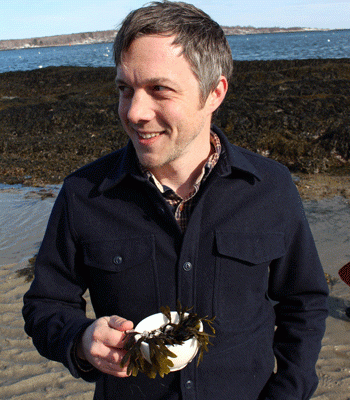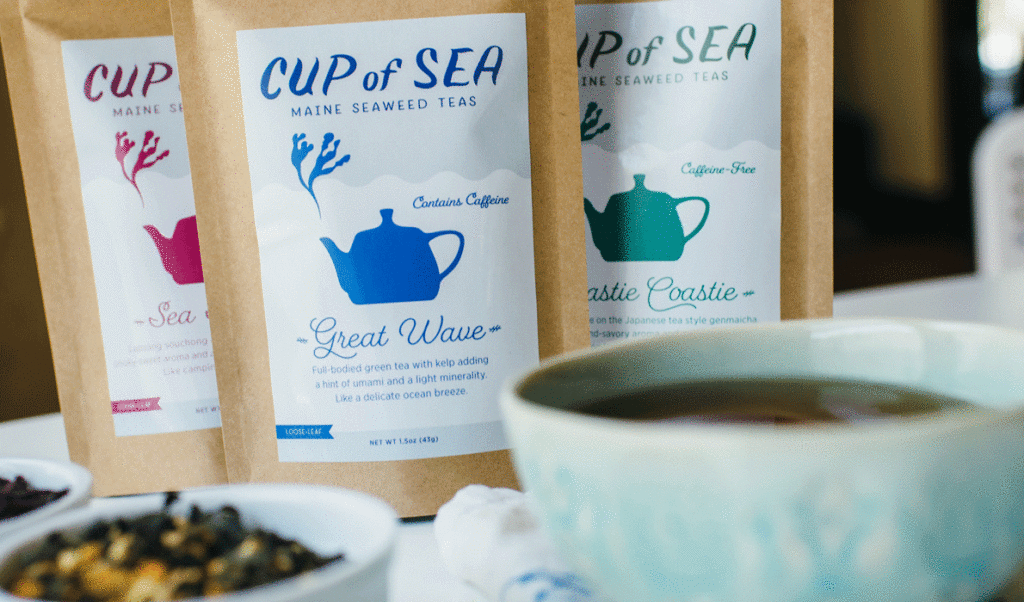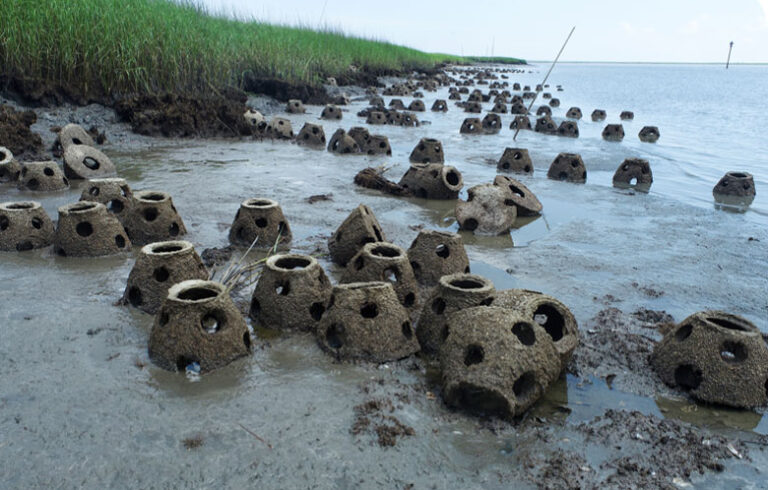By Stephanie Bouchard
If you were Josh Rogers’ childhood friend, you probably were offered dried dulse instead of Doritos chips for a snack. The red seaweed is today a trendy health food, but in the 1980s in Auburn, his friends thought it was “totally bizarre.”
Rogers hasn’t given up trying to get people to fall in love with seaweed. These days, he doesn’t just push it on friends, though. He’s made it his mission to encourage everyone to embrace seaweed.
Two years ago, he left his New York City job at Google working on dining content strategy to move back home to Maine with his family and pursue his dream of making and selling seaweed teas.
After a lot of experimentation and taste testing efforts, he launched Cup of Sea out of his Portland home.
“One thing (Google) really taught me was how to do product development,” he says. “You don’t have to have all the answers and you don’t have to be an expert necessarily. You just have to make a product that people want, and the way to do that is constant small-scale user testing.”
He offers four seaweed tea blends: honeybush and sea lettuce; green tea and kelp; ginger, turmeric and bladderwrack; and lapsang souchong tea and dulse.
Rogers thought his seaweed teas would sell especially well at health food stores, where there is already a market for seaweed products. While his teas have done well in these stores, they have been more popular at gift shops, specialty food shops, and tea and coffee shops.
He tries to source his ingredients through Maine-based companies as much as possible. He gets his seaweed from seaweed harvesters Atlantic Holdfast Seaweed Company in Deer Isle, VitaminSea Seaweed in Scarborough, and Maine Coast Sea Vegetables in Hancock.
He purchases his teas from Brunswick-based Little Red Cup Tea Company, which buys organic, fair-trade teas from China. Other tea ingredients are purchased from various organic wholesalers across the country.

Josh Rogers
Today, his teas are in more than 50 stores and he opened Heritage Seaweed—an all-things seaweed shop—on the east end of Portland in July of this year.
His company is enrolled in the Island Institute’s Island and Coastal Business Launchpad program, which offers small business support services, such as small business counseling and grants. The Island Institute publishes The Working Waterfront.
Rogers received a grant through the Launchpad program that he used to hire Pulp+Wire, a Portland-based marketing agency, to create the branding and marketing for Heritage Seaweed.
With the shop, he is aiming to raise the profile of seaweed, and Portland—a foodie mecca—is the perfect place to do that.
“People come up here for the lobsters, and the oysters, the beer—everything else that’s local and celebrated. But seaweed is still kind of invisible,” he says.
As people wander into his shop and sample seaweed products from Maine seaweed companies, he sees how enthusiastic they get. Based on their reactions to seaweed, he thinks it’s only a matter of time before Maine seaweed becomes as well known, respected, and sought as Maine lobster.
“I want to be a part of making that happen,” he says.





